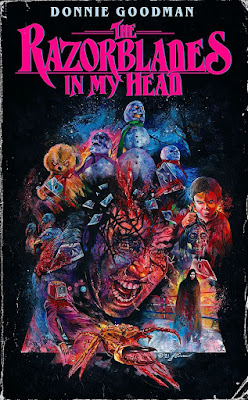As a reminder, Bentley is a former U.S. Treasury agent who experienced combat in The Korean War. Now, he works as a successful accountant in Washington, D.C. and spends his free time sailing his boat on the Potomac River. The author positions the Bentley character like an amateur private-eye with plenty of intelligence, street smarts, quick wits, determination, and tenacity. In some ways, Bentley always reminds me of the popular Chester Drum character created by Milton Lesser (better known as Stephen Marlowe). So, it is no surprise that these books normally start with a client walking into Bentley's office needing favors beyond the typical IRS hustle.
Chula Marques enters Bentley's office wanting an accounting sheet prepared for her father, a Baltimore resident and former revolutionist from an unknown banana country. Bentley is skeptical to become involved with this sort of international diplomat, and his fears are realized when he's handed counterfeit money. Because of Bentley's prior experience rooting out counterfeiters for the U.S. Treasury, he can easily identify saggy president eyes on American currency.
Bentley dismisses Chula, but her memory stays with him. He visits the local club where she performs, and has a run-in with her drunk and disorderly husband as well as the bandstand leader who may be having an affair with her. Bentley is also approached by a newspaper reporter that represents a sensational publication that focuses on the hottest D.C. scandals. They want the scoop on Chula and her father.
All of this is entertaining enough to read, but the author understands his consumer's needs. One morning, Bentley receives a phone call from Chula that her father is missing. His last known whereabouts is a small shoreline town in Maryland. When Bentley arrives at the beach cottage (a popular staple in crime-noir) he discovers the dead reporter. Someone killed the reporter to put the hush on whatever they feel was blabbed to or by Bentley. So, if the journalist has been whacked, it is only a matter of time before someone tries to hush Bentley.
Howard Hunt's plot is a little convoluted with some stolen jewels, a gunrunning enterprise, and the ins-and-outs of his relationship with Chula. The most entertaining aspect of the story for me was the abrasion between Bentley and a local criminal kingpin named Renzo. The story-line featuring Bentley squaring off with Renzo's two hitmen was worth the price of admission. Also, uncommon to this series, is a rather foul mood conveyed by Bentley. The imagery of the hero hoisting a rifle and walking down the beach to possibly kill his pursuer was just so vivid and memorable. Hunt was really on his game with this novel.
If you love intriguing private-eye novels with interesting characters and an intense, calculated story, then by all means Murder on Her Mind should be your next read. While Hunt is often unfairly dismissed by crime-fiction fans, I continue to find his literary work exceptional. The Steve Bentley series is the best representation of the Howard Hunt formula and this is no different. Highly recommended.
Buy a copy of this book HERE.





